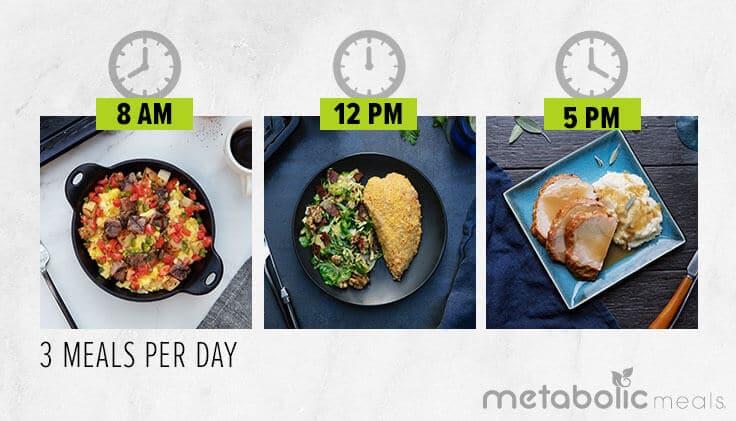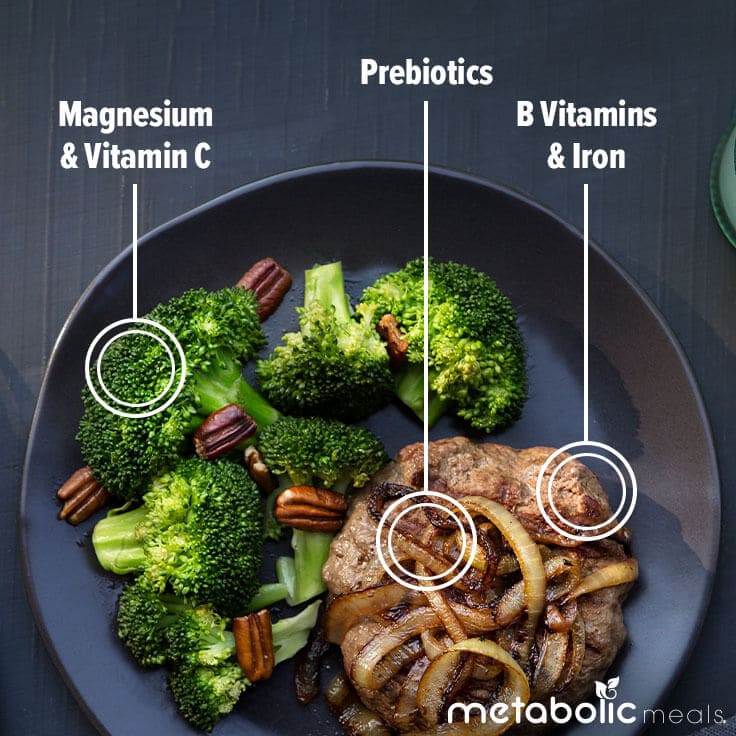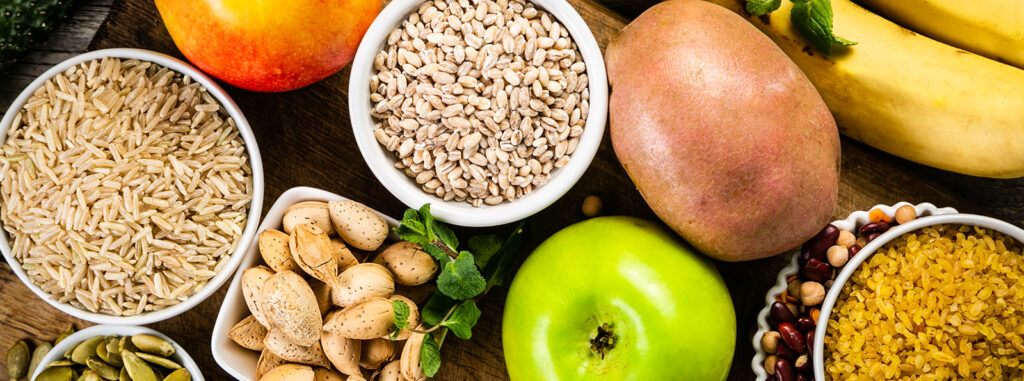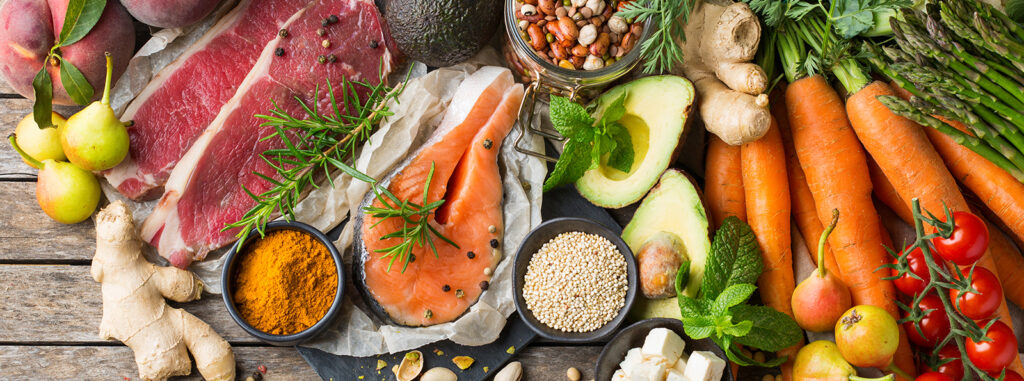ARTICLE AT A GLANCE
As we’ve learned more about Covid-19, the research supports that the greatest return on investment for decreasing severe illness is diet and exercise.
Let’s take a look at nutrition specifically and 3 Strategies that are proven to strengthen immune function.
1. Eat immune boosting foods, like high-quality proteins and micronutrient-dense vegetables.
You need to be vigilant about keeping your body’s defenses up. That requires getting enough of the nutrients your body needs to effectively fight off illness.
Quality Protein
High-quality protein is vital for a healthy immune system as your immune system relies on proteins to fight infections. Your body uses the amino acids in the protein you eat to make immunoglobulin, otherwise known as antibodies. Antibodies fight off bacteria, viruses, and toxins – and if your diet doesn’t contain enough protein to create those antibodies, you might become more susceptible to illness.
Many experts think the body uses the first 25 to 50 grams of protein consumed each day to detoxify the body and boost its immune system.
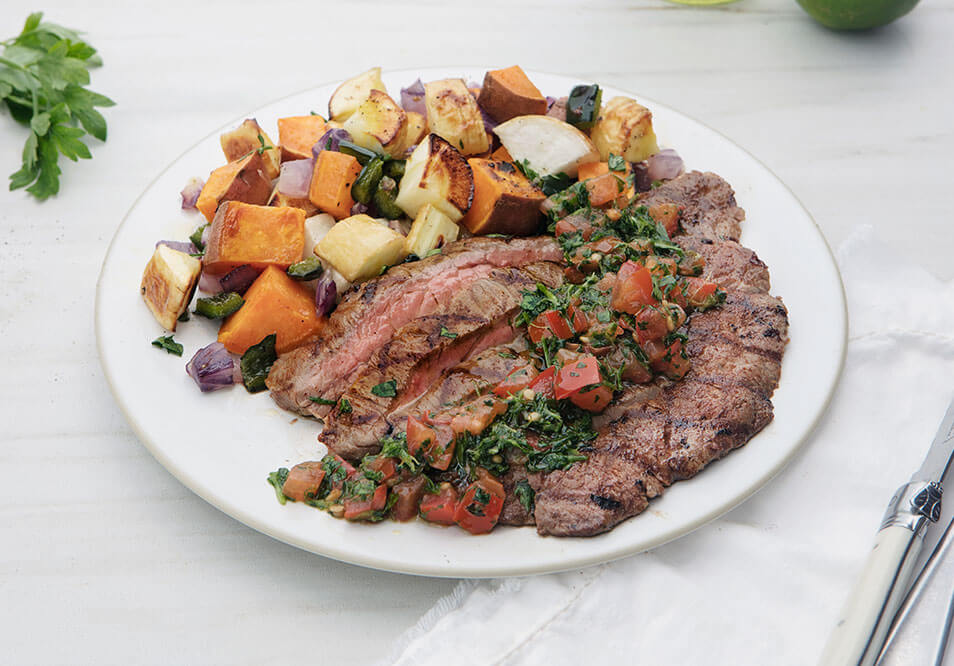
To get ensure you are getting enough of these valuable amino acids, include pasture-raised proteins, like grass-fed beef and bison, in your diet daily.
Prebiotics
Gut health is essential for a healthy immune system. Your gut wall houses 70+% of the cells that make up your immune system. Support the growth of good bacteria in your gut by eating foods that are good sources of prebiotics. Prebiotics are dietary fibers that encourage the natural growth of probiotics in your gut, lower body weight, and improve digestive function.
Prebiotic fibers are abundant in beans, legumes, cabbage, barley, onions, and more.
Magnesium
Involved in 300+ processes in the body and known to improve cardiovascular function, magnesium is lacking in the Western diet. Magnesium deficiency is an issue for the overall health for most Americans, but the current coronavirus pandemic raises the need for this vital mineral. Experts believe the coronavirus is presenting issues for the heart, not just the lungs.
Leafy green vegetables, seeds, nuts, figs, and dark chocolate are all good sources of magnesium.
Anti-Inflammatory Foods
All illnesses originate from some level of inflammation in your body. Reduce inflammation with the help of anti-inflammatory foods.

Green vegetables such as broccoli, Brussels sprouts, leafy greens, and more are packed with anti-inflammatory phytochemicals, antioxidants, and nutrients your body needs to stay healthy.
Other Immune-Boosting Micronutrients
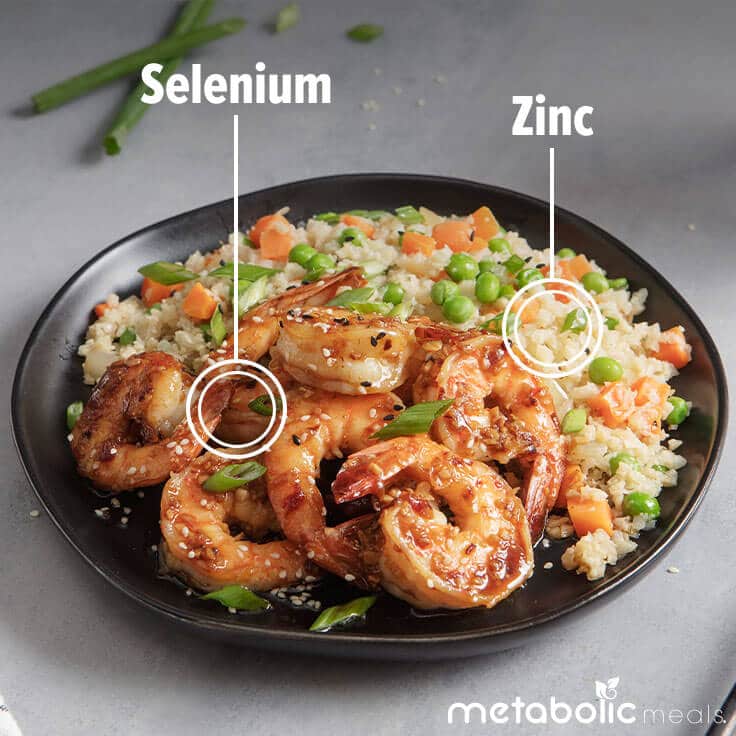
Including a variety of colorful vegetables and quality proteins daily will supply you with a full spectrum of vitamins and minerals that your immune system needs to function at its best.
Other key micronutrients include vitamins A, B, C, D, E and minerals iron, selenium and zinc.
2. If you’re on a specialty diet, you need to stick with it.
According to the CDC, people with pre-existing medical conditions, like diabetes and cardiovascular disease, are at greater risk of severe illness from COVID-19.
The increased reliance on fast food delivery and packaged “comfort foods” over the last two years has contributed to a steep increase of these co-morbidities.
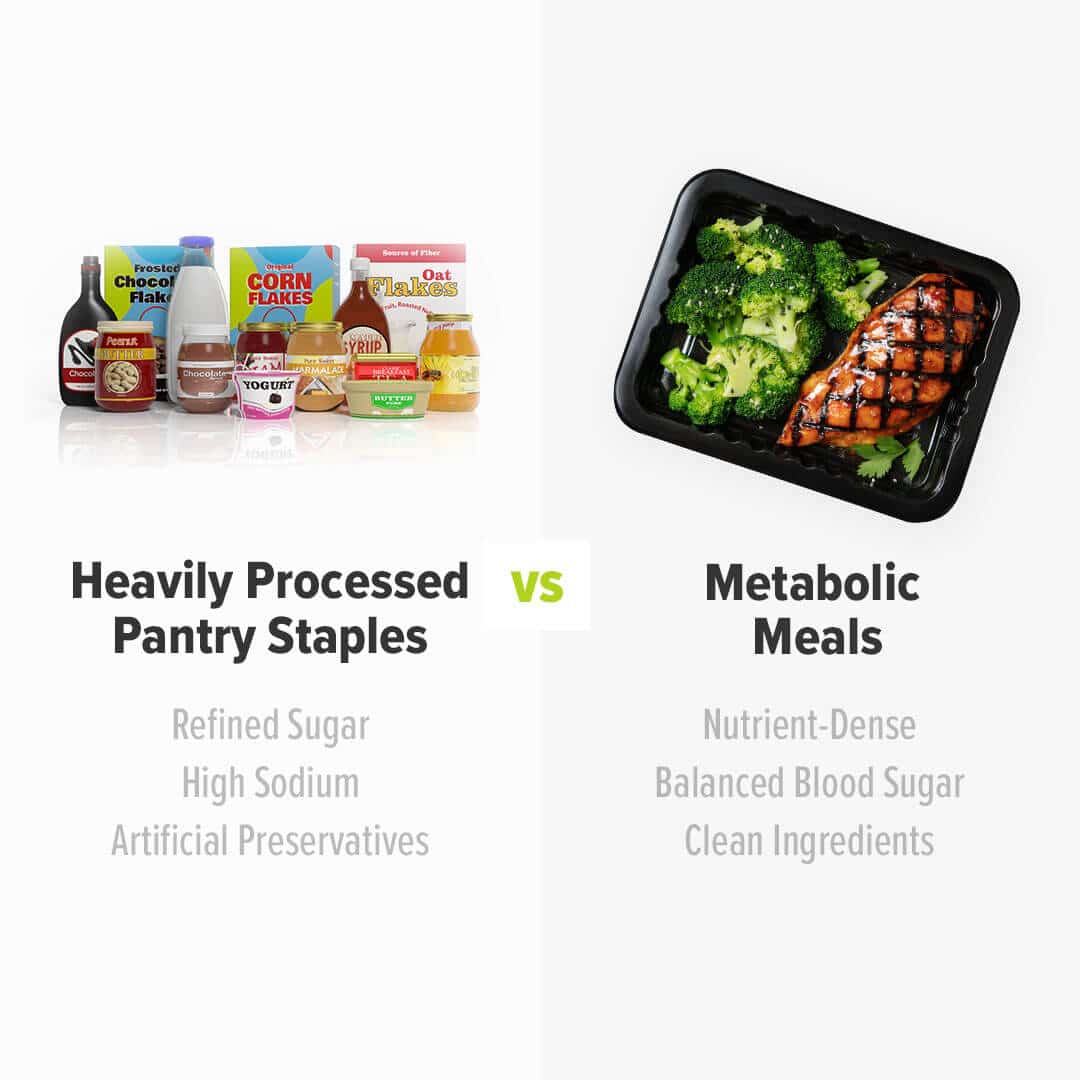
Consider cooking more or using a meal delivery service where you can maintain a regimen that supports your health.
3. Stick to eating 2-3 meals per day, within an 8-10 hour window.
Over the last two years people have spent significantly more time at home which disrupts the normal routine. This may have lead to a habit of grazing throughout the day. This can quickly lead to an overconsumption of calories week over week and considerable weight gain.
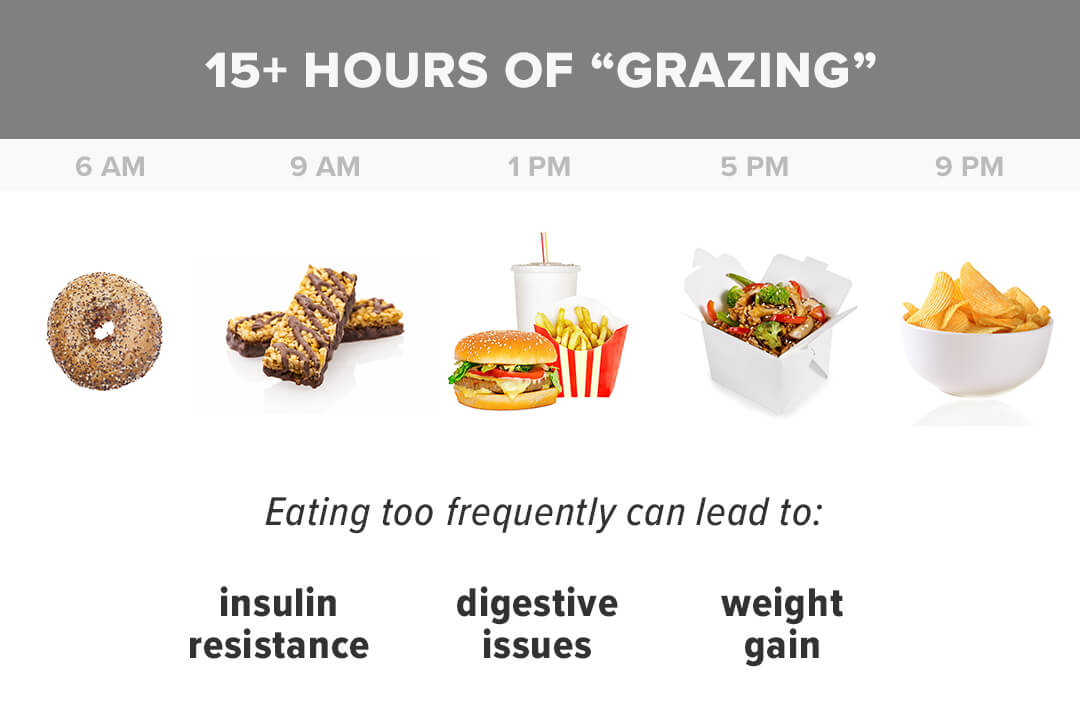
Satchin Panda, professor at the Salk Institute believes that people improve their metabolic health by eating within a daily 8-10 hour window. Dr. Panda has found in his research that most people actually graze over a 15 hour or longer window each day.
“The gut has a clock that regulates the daily flow of enzymes, the absorption of nutrients and the removal of waste. These daily rhythms are so ingrained that they are programmed in our DNA,” said Panda.
Eating too frequently can disrupt this rhythm leading to insulin resistance, digestive issues and weight gain.
World renowned nutrition expert, Dr. Eric Serrano agrees that most people would be better off sticking with 3 meals per day. “The liver has a 4-hour clock and when we eat more frequently than this, we break the body’s natural digestive rhythm.”
Serrano recommends eating at 8 am, 12 pm and 5 pm. “This matches our natural circadian rhythm. Eating more often than this makes our liver work harder to create bile and also taxes the pancreas. We just weren’t meant to eat 5, 6, 7 times per day.”
For a meal timing schedule that mimics your natural circadian rhythm, eat 3 meals per day at 8 am, 12 pm and 5 pm.
